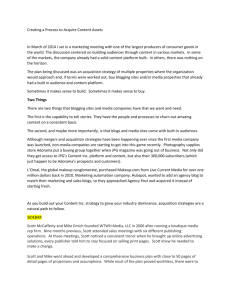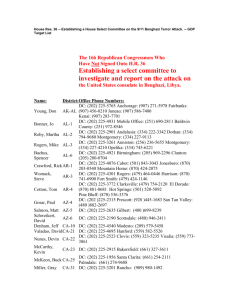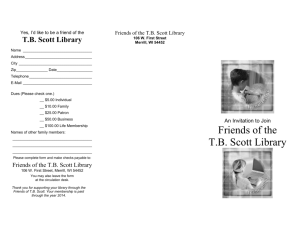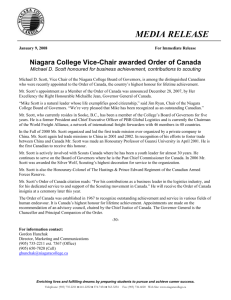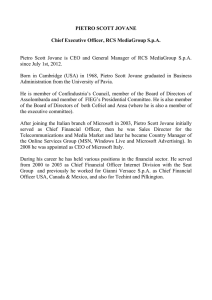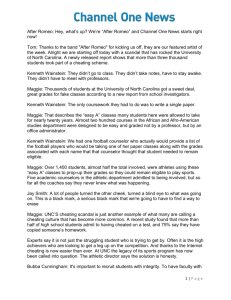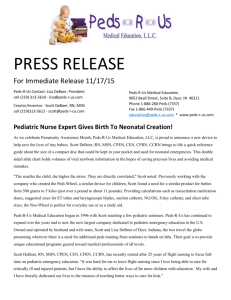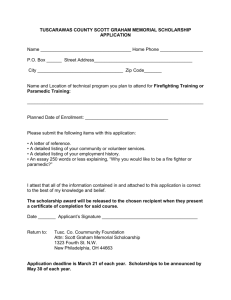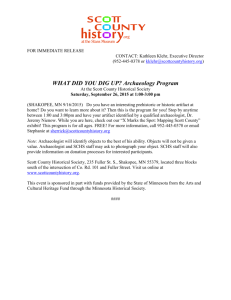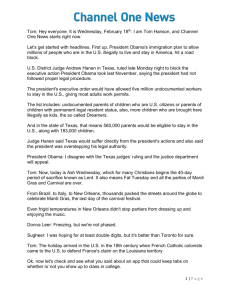Ethics Report
advertisement
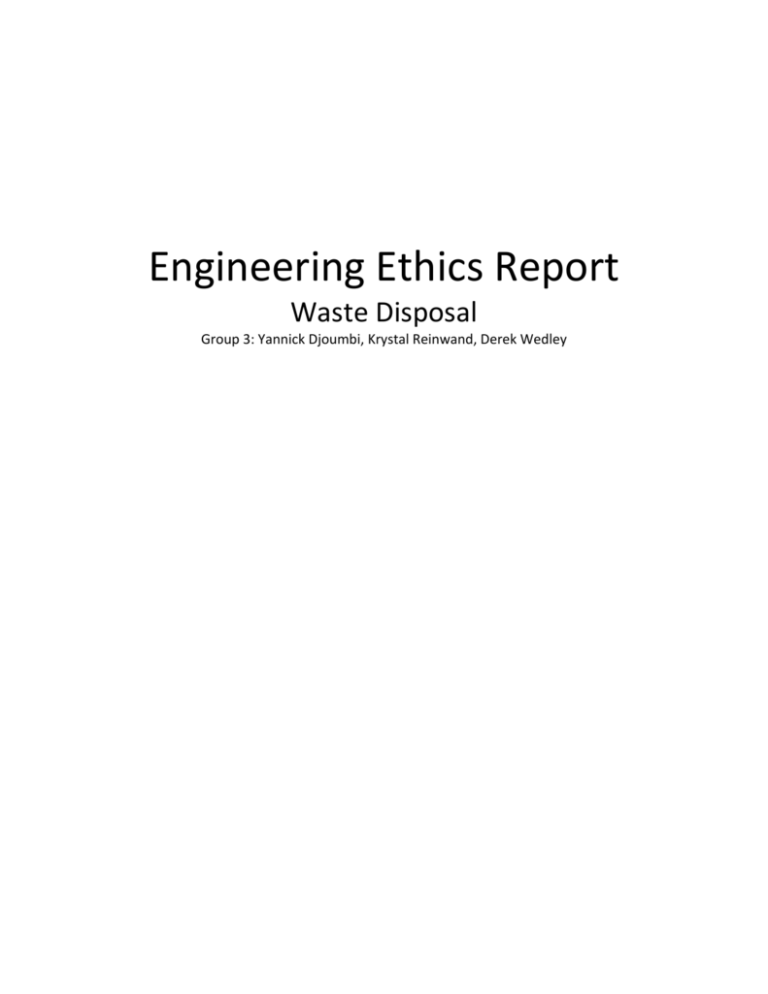
Engineering Ethics Report Waste Disposal Group 3: Yannick Djoumbi, Krystal Reinwand, Derek Wedley In the first scenario of unlawful chemical waste disposal, an engineer working for ABC, Scott, discovers leaking drums in a warehouse at an offsite location from the company. The EPA forbids disposal of chemical waste at the home site, where the company is located. Still, something has to be done about the chemicals leaking. Scott calls the head of the chemical waste division, Tom, who insists on taking it back to the home company and having his guys clean up. Our team agrees that Scott should advise Tom against taking the matters into his own hands and should go above him to a superior or contact an authority instead. Neither Tom nor Scott are trained or certified in the field of waste removal, and to protect themselves and others, they should abide by the code of ethics set for engineers, specifically under the Rules of Practice, number two. “Engineers shall perform services only in the areas of their competence.” Tom used the excuse that the off-site handlers wouldn’t take care of it the correct way. A better option, if he had no faith in outside handlers, would be to call in another company that is more qualified for offsite removal. In the second scenario, Scott ends up helping Tom return the leaking drums to ABC. Even though there were no apparent complications, it was still unethical, because it still risked putting both themselves, and other people in danger. The idea behind a code of ethics is to lessen the risk of accidents and maintain accountability. Even if nothing had happened, why risk it? In the code, there are also many passages against dishonesty. This was dishonest both to their company, people who live in the area, and to the EPA. Cutting corners to save money is not worth the risk of health or destroying the environment. By doing nothing to stop Tom and by actively contributing to the unethical clean up, Scott also violated another code of ethics. He was an active party in a dishonest practice under Rules of Practice, section 1, parts d, e, and f. In the final situation, a worst case scenario plays out. The leaking drums contaminated ground water, despite the assumption that there were no complications originally. A class action lawsuit is started against ABC and uncovers years of violations. The names of engineers working for ABC, specifically the division in control of where the violations took place, are found. Scott is summoned to court. In his testimony, our team agreed that Scott should admit his role in the violations: He felt pressure from a superior, broke a code of ethics to help him clean up the spill and then covered it up to avoid legal issues. He risked ruining lives because Tom thought he was making a better judgment call and because Scott let it go. This more than likely will jeopardize Scott’s career as an engineer, and have some serious legal ramifications. If Scott lied again in court and covered his role up, not only would it ruin more lives, but he would lack all integrity. If it was proven that he knew despite lying, his troubles in court would deepen. Even if Tom thought he made a better choice, Scott knew that it broke many different rules. There are consequences for doing so from massive fines, up to and including prison, whether it was found out right away, or ten years later. In order to save himself from any further legal action, Scott would need to acknowledge his role. The worst case scenario happens more often than we think. The biggest case that comes to mind is the citizens of Hinkley vs. Pacific Gas & Electric, dramatized in the movie Erin Brockovich. The BP oil spill is another example. There are real-world implications for the ethics codes. Many disasters can be either avoided, or lessened when precautions are taken. Even if nothing had been contaminated originally, the idea is that when engineers make decisions that break rules, the implications can be devastating, even if it takes years for the problem to manifest. These are not just guidelines to follow. Ethics codes are designed and implemented to provide safety for all of us, and also accountability for those who decide to ignore them.

